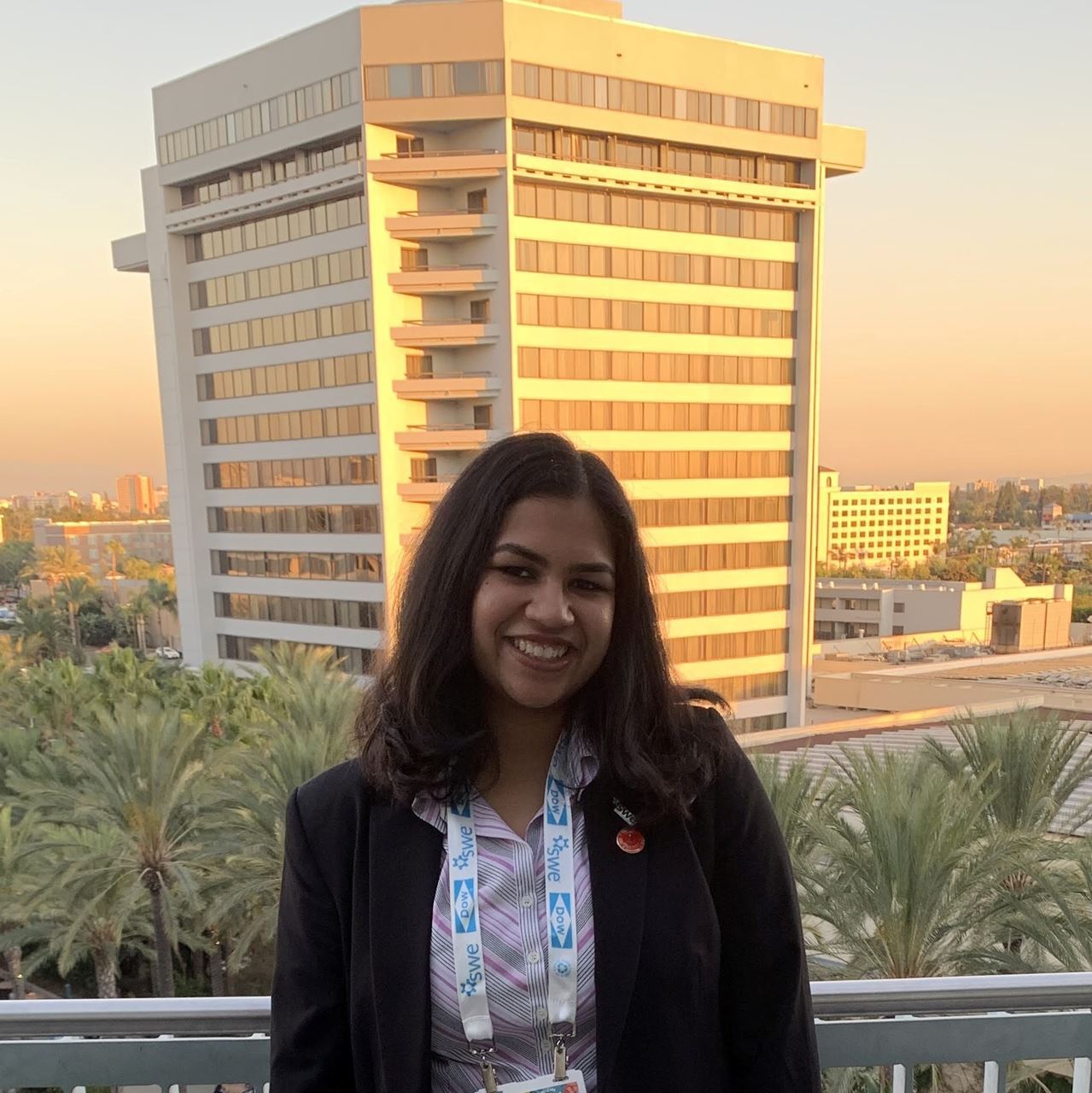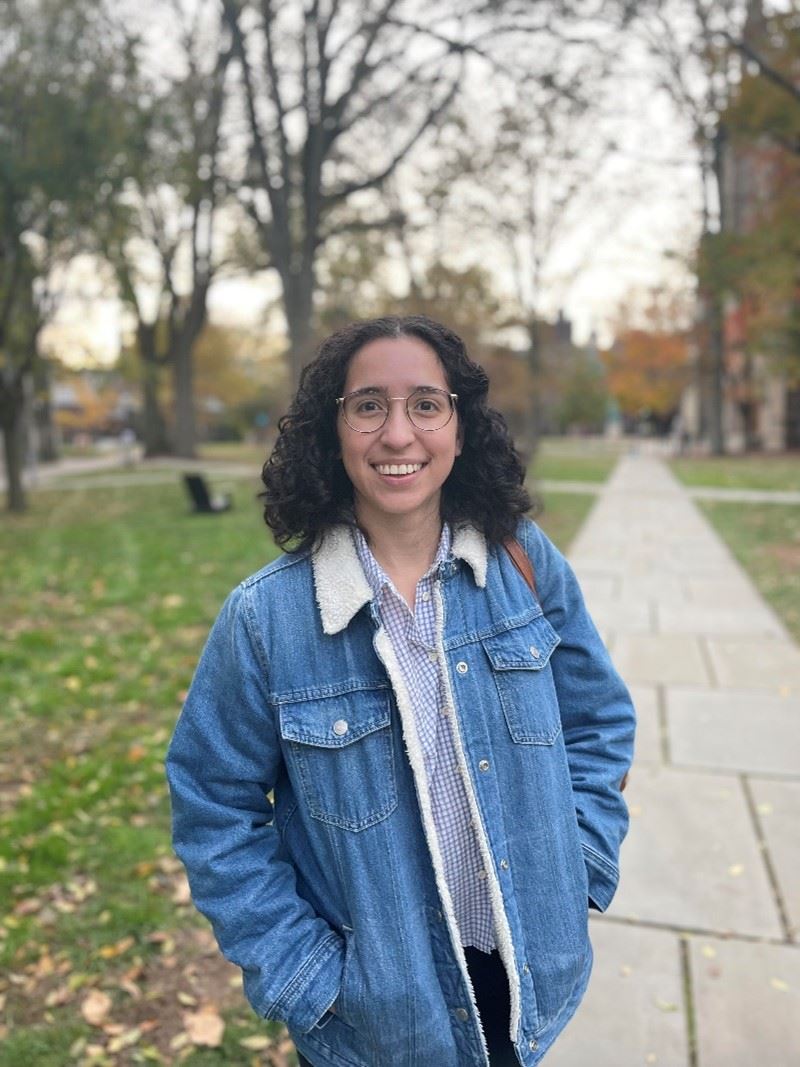NJSWEP Scholarship Recipients
NJSWEP congratulates all our Scholarship recipients and looks forward to their participation in our organization and their contributions to the environmental field. We encourage any student interested in the Scholarship Program to apply for future awards.
2025 Scholarship Award Recipients
| Carlie Johanning (2025 Undergraduate Recipient) is a rising senior at Rutgers University majoring in Ecology, Evolution and Natural Resources and Criminal Justice. Since her time at Rutgers University, she’s had the opportunity to be involved in multiple research projects through both Rutgers University and Stockton University as a forestry technician. These projects involved bird parasites, and the mapping of eastern fence lizards home range. She also volunteers at Whitesbog where she assists with their education program, and had the opportunity to intern at the New Jersey Department of Environmental Protection (NJDEP) this past year where she will be continuing again this summer! In her free time, she enjoys hiking, kayaking and anything related to the outdoors. |  |
|
Yasmin Thomas (2025 Undergraduate Recipient) is a rising junior at Ramapo College of New Jersey, transferring to pursue a Bachelor's Degree in Environmental Science at Rutgers University. At Ramapo, she conducted student research in local weather patterns and what they may suggest about climate change. She served as president of 1STEP, an RCNJ environmental organization, leading events and projects focused on recycling, clean-ups, and sustainable clothing. She also spent her time interning at the New May Weis center in Ringwood, NJ. She taught people from a range of ages about varying environmental topics. She hopes to pursue a career that allows her to help further the safety and quality of our water and intends to continue her education. Her goal is to make use of her passion for the environment and skills to promote sustainability and develop solutions that positively impact generations to come. |
 |
|
Oluwaseun Adeyinka (2025 Graduate Recipient) is a sustainability scientist and doctoral candidate in Environmental Science and Management at Montclair State University. With over eight years of experience spanning aquatic pollution, renewable energy, and urban sustainability, she has led impactful research on the spatial distribution, policies, and ESG implications of green roofs. Her academic and professional journey includes notable roles in sustainable infrastructure planning and environmental education in the U.S. and Nigeria. A recipient of the Alpha Epsilon Lambda Award and multiple academic honors, Oluwaseun combines data-driven insights with passionate advocacy for sustainable development, environmental justice, and innovative green solutions in urban spaces. |
 |
|
Rachel Davitt (2025 Graduate Recipient) is a first year PhD Student in the Rutgers University Department of Marine and Coastal Sciences. She grew up in Randolph, New Jersey, and received her Bachelor of Science in 2023 from the University of Delaware. During her time there, she interned with the National Science Foundation’s REU program at Rutgers University (RIOS), where she first became interested in studying phytoplankton. Now, with the Rutgers University Graduate Program in Oceanography, her research explores how diatoms, a dominant group of phytoplankton, interact with their environment and how these interactions will change due to climate change. Specifically, she is currently studying how Ocean Alkalinity Enhancement, a marine Carbon Dioxide Removal method, affects overall diatom physiology. Additionally, her research explores the role of marine viruses in these relationships. Her work aims to bridge gaps of knowledge regarding how climate change will impact diatom-environment interactions, as diatoms and all phytoplankton are essential to the environment by forming the base of the marine food web and by providing half of the oxygen we breathe. She is also passionate about scientific communication and outreach. |
 |
2024 Scholarship Award Recipients
| Kirthana Krishnamurthy (2024 Undergraduate Recipient)is a rising senior at The College of New Jersey pursuing a Bachelor's Degree in Biology with a minor in Environmental Studies. She is passionate about the intersection of human health and the environment, and is currently involved in research at TCNJ on pathogenic growth in water supply systems. As a student researcher in the biology department, she is also investigating the impact of ocean acidification on the growth and development of golden king crabs. Her goal is to pursue a career as a physician with a research focus in environmental health, so that she can continue exploring social and environmental determinants of health from a clinical perspective |  |
|
Cameryn Brown (2024 Undergraduate Recipient) is a rising senior at Drew University, majoring in Political Science and minoring in Environmental Studies and Sustainability. At Drew, she takes on leadership roles as President of The Sustainability Committee and Drew's Environmental Action League (DEAL). She spearheads initiatives such as Drew in the Dark, an energy-saving Residence Hall competition, and advocates for recycling and renewable energy reforms on campus. Her academic focus revolves around the intersection of environmental justice and law. She envisions a future where legal principles are instrumental in addressing environmental challenges while ensuring equity and fairness for all communities. Post-graduation, Cameryn aims to pursue her passion further by attending law school. Through her dedication and commitment, she strives to make a lasting impact in the field of environmental advocacy and policy. |
 |
|
Samantha Alaimo (2024 Graduate Recipient) is a PhD Candidate in the Department of Marine and Coastal Sciences at Rutgers University studying Oceanography. Her research looks to establish connections between commercially regulated fish species and the physical features of their dynamic marine environment. This research is community-driven and has involved fisheries stakeholders, like fishers and state government officials. This dissertation work would provide the crucial context needed to understand the distributions and abundances of commercial and recreational targets relative to ocean conditions. By incorporating stakeholder opinions, this research allows for collaboration across parts of the industry that could lead to better management practices and more sustainable fisheries. |
 |
|
Qiufeng Lin (2024 Graduate Recipient) is a PhD candidate in Environmental Science and Management at Montclair State University. Her research interest is innovative water treatment and water reuse technologies for tackling water pollution challenges and enhancing water supply in response to climate change. Currently, she is working as a key member in a U.S. Agency for International Development (USAID) project with Egyptian experts to develop resilient water reuse systems to combat agricultural drought. She has received several prestigious awards, including the 2023 Tracey G. Liberi Drinking Water Careers Memorial Scholarship from the American Water Works Association (AWWA) and the 2022 John J. LaGrosa Award from the New Jersey Water Environment Association (NJWEA). Her career goal is to become a pioneering engineer, researcher, and educator in water science and engineering, addressing complex water supply and pollution challenges through an interdisciplinary approach. |
 |
2023 Scholarship Award Recipients
|
Danielle Bongiovanni (2023 Undergraduate Recipient) is a rising senior at Ramapo College of New Jersey. She is pursuing a Bachelor's Degree in Environmental Science with a minor in Environmental Studies. Her passion for conservation is matched by her interest in writing. Danielle has been an active member of The Ramapo News throughout her college career, and will serve as the editor-in-chief during the upcoming semester. She hopes to use her skills to support sustainable development that strengthens people's ties to their local resources. |
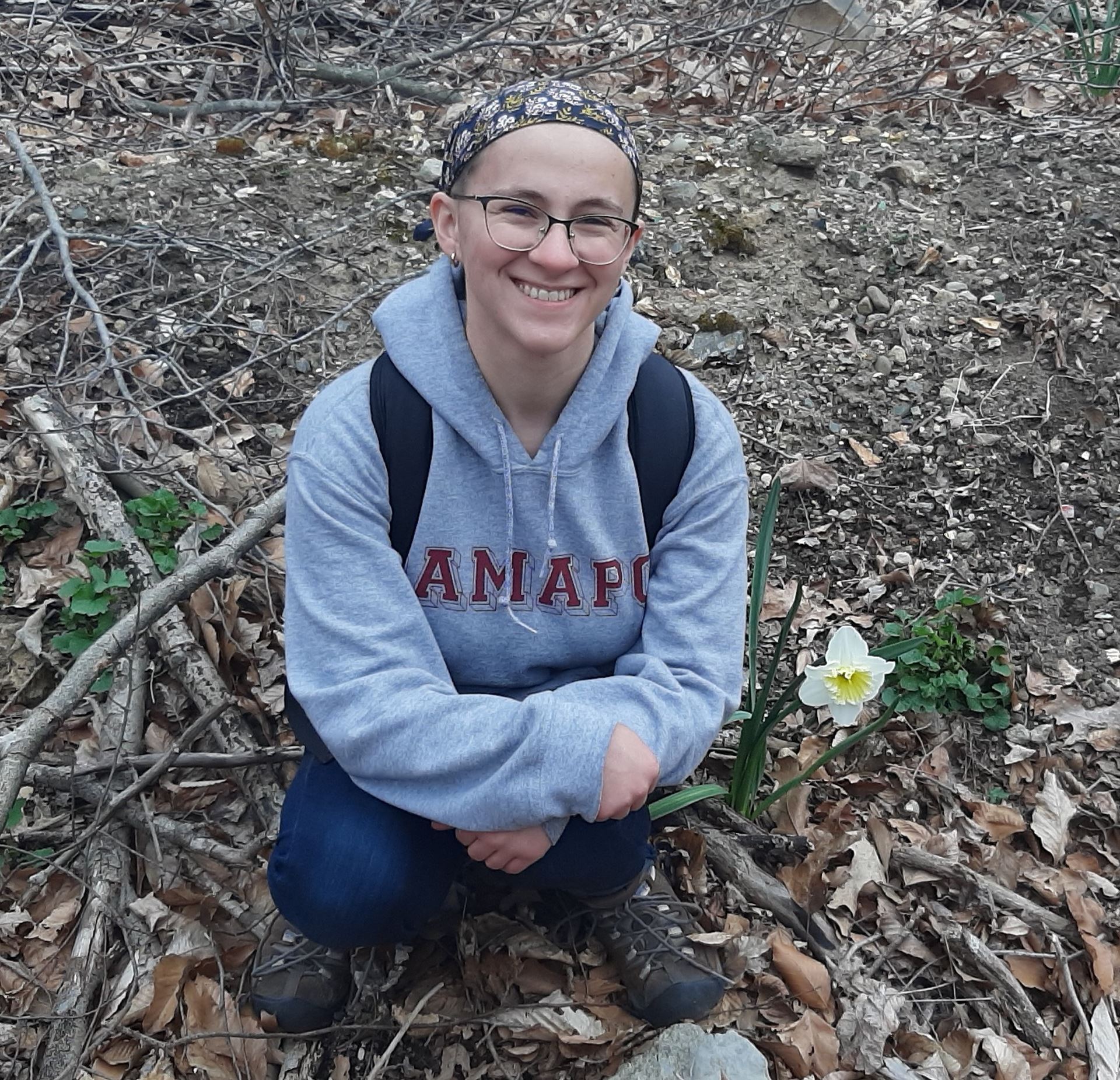 |
|
Bridget McDevitt (2023 Undergraduate Recipient) is a rising senior at Rowan University pursuing a Bachelors of Science in Civil and Environmental Engineering along with a double minor in Geography and Environmental and Sustainability Studies. With an early love for science, Bridget found her passion for the environment through her hobbies of gardening, hiking, and reading. Now, Bridget currently works on a DOE-funded research project that explores biological techniques to preserve the resiliency of Arctic ecosystems from permafrost thaw. Also, she has researched natural soil-stabilization methods to offset the use of concrete. Bridget plans on continuing her education at the graduate level upon graduation. Bridget’s life-long goal is to develop sustainable solutions for challenging problems to uphold the integrity of society and the environment that it depends on. |
 |
|
Genevieve Ehasz (2023 Graduate Recipient) is a recent Rutgers University graduate with a Bachelor’s Degree in Environmental Engineering and a minor in Spanish. She will continue her education at Rutgers University for the combined B.S./M.S. 4+1 Master’s program in Bioenvironmental Engineering. Her undergraduate research primarily focused on water quality and wastewater-based epidemiology. Recently, she completed a senior thesis titled “Detection of SARS-CoV-2 variants in wastewater by multiplex qPCR” which earned first place in the New Jersey Water Environment Association student poster competition. This summer she will continue working on a microbial source tracking project to identify sources of contamination along the Raritan River. Genevieve is looking forward to expanding her research and knowledge into different fields of environmental engineering. Afterwards, she hopes to pursue a career where she can expand environmental remediation to underserved communities in the US and abroad. Genevieve enjoys nature, traveling, music, and spending time with her friends, family and pets. |
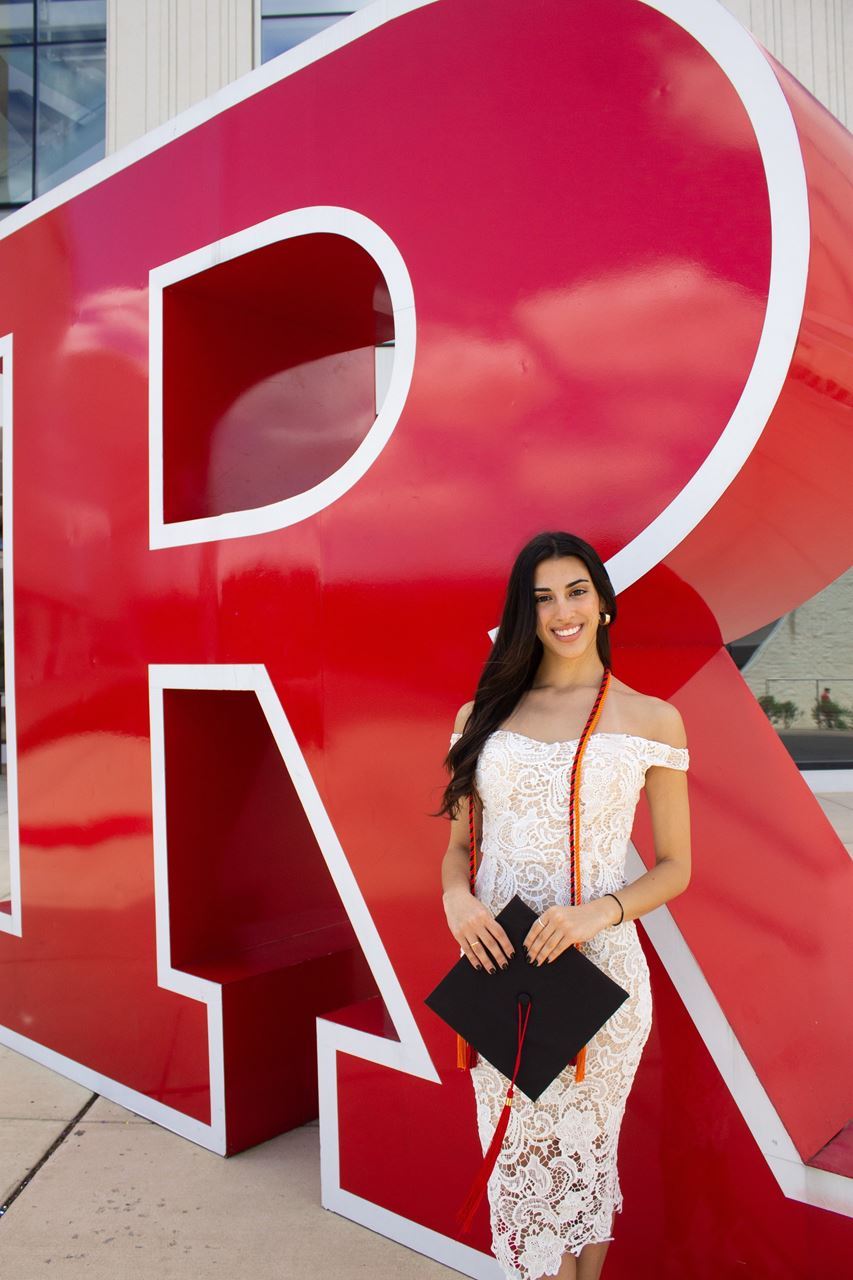 |
| Kathleen Song (2023 Graduate Recipient) is an incoming graduate student pursuing a Master’s Degree in Public Affairs at Princeton University’s School of Public and International Affairs. She was selected as a Graduate Fellow at Princeton University, which involves two years of work rotations in the US federal government. After completing her graduate degree, she intends to continue her pursuit of a career in environmental protection in the federal government. Kathleen recently earned a Bachelor of Science in Civil and Environmental Engineering at Princeton University. She has received the following recognitions: election to the Tau Beta Pi Honor Society, selection as National Scholar, recipient of the Shapiro Prize for Academic Excellence, and the recipient of the Daniel E. Bigler Award awarded by the NJWEA. She is also a Rhodes Scholarship Finalist. Kathleen has worked as a research assistant for the UN Intergovernmental Panel on Climate Change, and in 2022 she interned at the US Department of Justice’s Environment and Natural Resources Division as a legal research intern in the Environmental Enforcement Section. She has also volunteered with the Citizens’ Climate Lobby where she organized for bipartisan carbon pricing legislation and conducted research with Princeton University’s Urban Nexus Lab, the Liechtenstein Institute on Self-Determination, and UCLA’s Joint Institute for Regional Earth System Science and Engineering. Kathleen is originally from Orange County, California. | 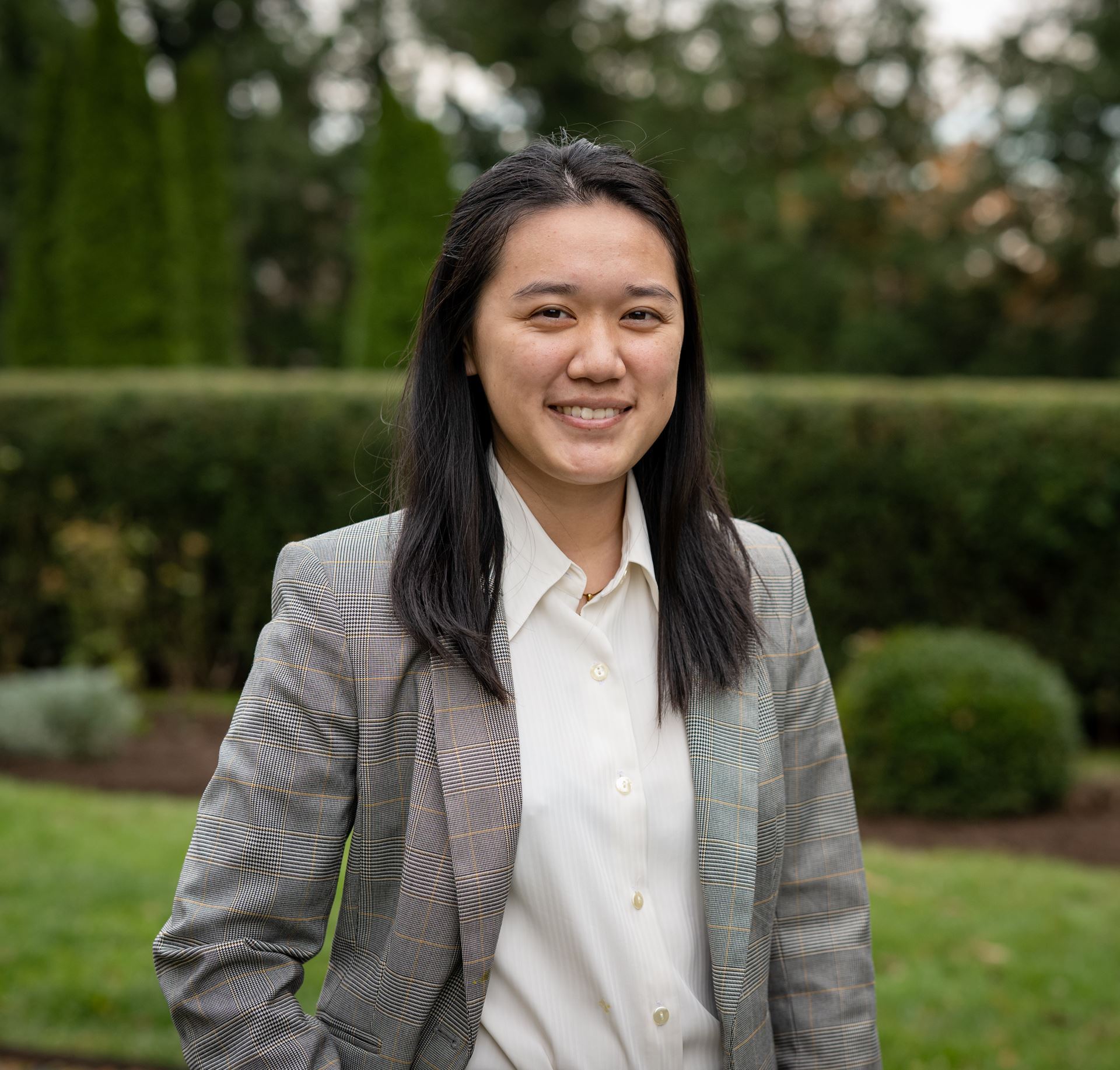 |
2022 Scholarship Award Recipients
|
Jaquelyn Cook (2022 Undergraduate Recipient) is a sophomore at Rider University pursuing a degree in Environmental Science. Her occupational objective once she graduates is to become a hydrologist, working to provide clean water to large communities. She has recently worked with a professor to research the rising sodium levels in the Delaware River Watershed, which connects to her campus watershed. She looks forward to continuing and expanding her research next semester as she continues to learn more about Environmental Science. |
|
| Emily Zembricki (2022 Undergraduate Recipient) is a senior at Stockton University pursuing a dual Bachelor of Science degree in Marine Science and Sustainability as well as a minor in behavioral neuroscience. After completing her undergraduate degree, Emily plans on continuing her education and earning a Ph.D. in Biopsychology. In graduate school, she anticipates studying the psychological impacts of captivity on orca whales so that she can advocate for the improved treatment of orcas that remain in marine parks. Emily carried out research at Rutgers University where she examined how increasing humpback whale presence has impacted shifting krill dominance in the West Antarctic Peninsula (WAP). After constructing and overlaying time series of humpback whale sightings, krill densities, and corresponding sea ice coverage data, she found that rising numbers of humpback whales in the WAP between 1993 and 1998 reinforced shifts in the dominant krill species from Euphausia superba to Thysanoessaspp., which could have serious implications on the structure of food webs in the greater Antarctic region in the near future. This experience allowed Emily to work with whales for the first time and break into the research field at a professional level, which she hopes to continue contributing to going into graduate school and in her career. |
|
|
Amy Cannon (2022 Graduate Recipient) is an Environmental Science Ph.D. candidate and Teaching Assistant at Rutgers University – Newark. She grew up in New Castle, Delaware and attended Delaware Technical and Community College to earn her Associate of Applied Science in Environmental Technology, with a focus on water and wastewater. She completed her undergraduate study at Delaware State University, where she earned her B.S. in Environmental Science, while also authoring seven publications. Professionally, she is driven to undercover innovative ways to clean our water; and her primary focus is eliminating lead (Pb) in drinking water. Her career goals include working with the USEPA in a Post-Doc role and earning a position at a university where she can work towards improving national primary drinking water standards. She is inspired by the legacy of my grandfathers, knowing that their stories were made on the water as well. She enjoys spending time outdoors, reading, live music, and my two beautiful cats. She is committed to leaving this world a better place than she found it. She wants to be part of the solution for clean drinking water for future generations.
|
|
| Hailey Riechelson (2022 Graduate Recipient) is a fourth year PhD student at Rutgers University in the Department of Marine and Coastal Sciences where she studies paleoclimate. Her research looks to the past to understand what causes parts of the climate system to change. Her dissertation will focus on variability in the wind and rain belts in Chilean Patagonia and effects on ocean circulation over the last 12,000 years. Her occupational objective is to make climate knowledge more widely accessible through outreach and inclusive pedagogy. As we have already started to experience the effects of human influence, she hopes to provide people the tools to have informed discussions about climate. |
| Shreya Patil (2021 Undergraduate Recipient) is a junior at Rutgers University pursuing a Bachelor of Science degree in Environmental Engineering. Her occupational objective after graduation is to become an environmental engineer. Shreya is the Vice President of the Students for Environmental and Energy Development club and participated in the AWWA Water Filtration Competition where she helped research and assemble a filter that reduced the turbidity of a water sample from around 400 ntu to 0.96 ntu, making the effluent water near drinking quality. We were impressed with her plans to pursue a PE in order to help limit and remediate contaminated water in freshwater supply sources. |
|
| Pasqualina Rivetti (2021 Undergraduate Recipient) is a junior at the New Jersey Institute of Technology pursuing a Bachelor of Science degree in Environmental Science. Her occupational objective after graduation is to become a botanist. Pasqualina worked on a project at Island Beach State Park (IBSP) to protect the back portion of the beach without compromising recreational activity on the foreshore. After two seasons of installing protective fencing and collecting elevation data at IBSP, the populations of federally endangered beach plants increased by an order of magnitude and in 2019, the threatened shorebird piping plovers nested on the beach for the first time since 1989. The experience taught Pasqualina several methods of surveying, data collection and entry, as well as how to analyze and present findings in a professional setting. She also fell in love with our state beaches along the way. |
|
| Maravilla Clemens (2021 Graduate Recipient) is in her first year of a Master of Science degree program at Rutgers University where she is a Geography major. Her occupational objective after graduation is to become an environmental consultant or science communicator who focuses on coastal resiliency. Her research focused on Small Islands Developing States (SIDS) was novel to the committee. Maravilla’s research focuses on two green infrastructure development projects receiving international funding in Caribbean SIDS. She will be researching exposure to climate hazards such as sea level rise and storms and working with business owners to identify what is needed to increase resiliency to these hazards. | 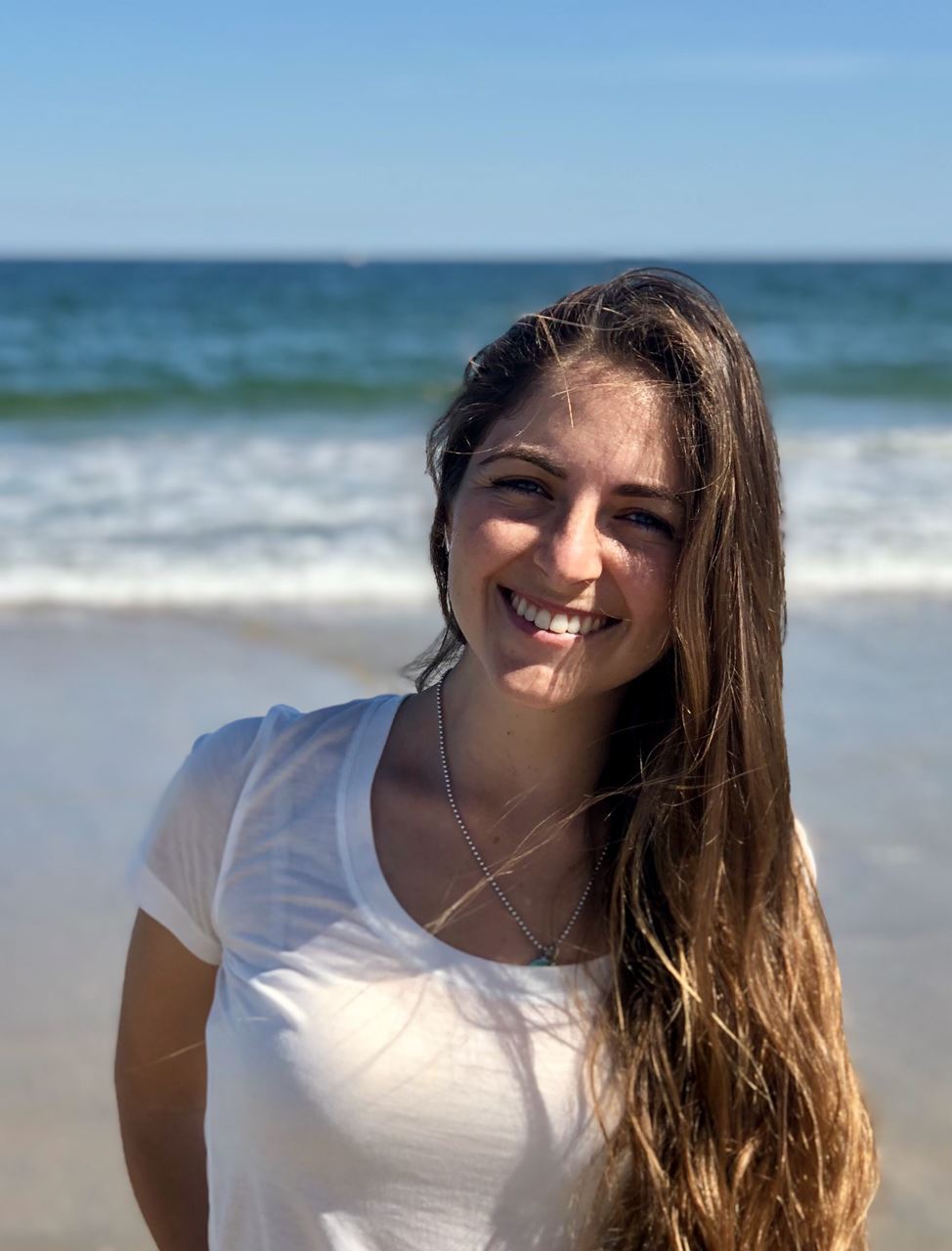 |
| Abigail Lazofsky (2021 Graduate Recipient) is a fourth year PhD student at Rutgers University where she is pursuing a degree in Exposure Science. Her occupational objective after graduation is to become an environmental health and safety professional. We appreciated her perspective and focus on microenvironments where we spend 90% of our day. Her research focuses on ways to quickly and accurately identify endocrine-disrupting compounds (EDCs). Specifically, she is trying to develop a novel liquid chromatography mass spectrometry (LC-MS) method that focuses on multi-class compounds that attack the same biological system. By combining the specificity of targeted analysis with the inclusiveness of broad-based screening, experimental approaches can blend the knowledge of toxicological behavior with analytical methodology, allowing for early identification of potential key exposures. | 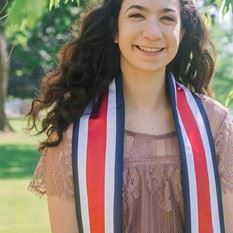 |
2020 Scholarship Award Recipients
| Emily Cruz (2020 Undergraduate Recipient) is currently a senior at Princeton University pursuing a degree in Civil and Environmental Engineering with certificates in Environmental Studies, and Latin American Studies. Her previous experience has geared towards improving the environment in various sectors such as agriculture, coastal development, and through education, with her ultimate goal being to work in environmental restoration. She is extremely interested in finding ways to quantify qualitative actions humans take to restore the environment, and creating an economic framework that accounts for and prioritizes sustainability. After graduating, Emily will be working for BCG in Washington D.C. with hopes to work in projects primarily in the Climate and Sustainability Practice. |
|
| Danielle Dyson (2020 Undergraduate Reccipient) is graduating from Stockton University this year with a B.S. in Marine Science and a B.S. in Environmental Science. As she is graduating, she is looking to expand her research area as she continues to research important questions about the Jersey Shore that she grew up on. This scholarship opportunity has helped her to work towards my dream. College was a financial burden for her family as she lost her father right before starting University, and it was through the generosity of people at NJSWEP all that she was able to get her degrees. |  |
| Morgan Mark (2020 Undergraduate Recipient) received her B.S. in Bioenvironmental Engineering from Rutgers University this past May and was recently accepted into Rutgers' Graduate Program in Ecology and Evolution under the advisorship of Dr. Brooke Maslo. She will research COVID-19 in wildlife populations and examine the potential for spillover back to human populations. Her other research interests include wildlife diseases, snakes, birds, and botany, and she enjoys being outdoors, birding, and nature journaling. | 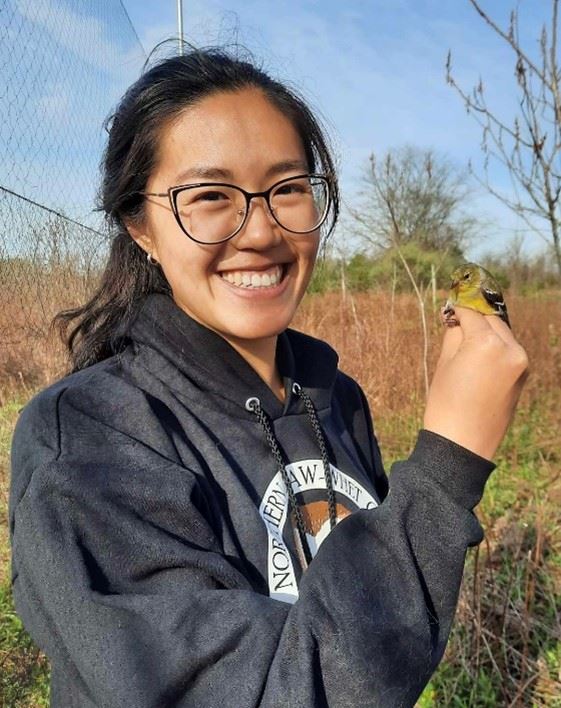 |
| Sarah Borsetti (2020 Graduate Recipient) is a Post-Doctoral Researcher working at the Rutgers Haskin Shellfish Research Lab to answer questions about the interactions among commercial shellfish fisheries, wind energy, and changing climate conditions. In March 2021, Borsetti received her PhD from Rutgers University, where she studied the life-history traits of an unfished gastropod along the warming U.S. continental shelf. This project provided critical information that has allowed the commercial fishing industry to be better informed about increasing investment in this fishery. In addition to the importance of this information in developing a fisheries management plan, these data from an unfished population can serve as a model to understand how other heavily exploited populations are impacted by fishing and climate. | 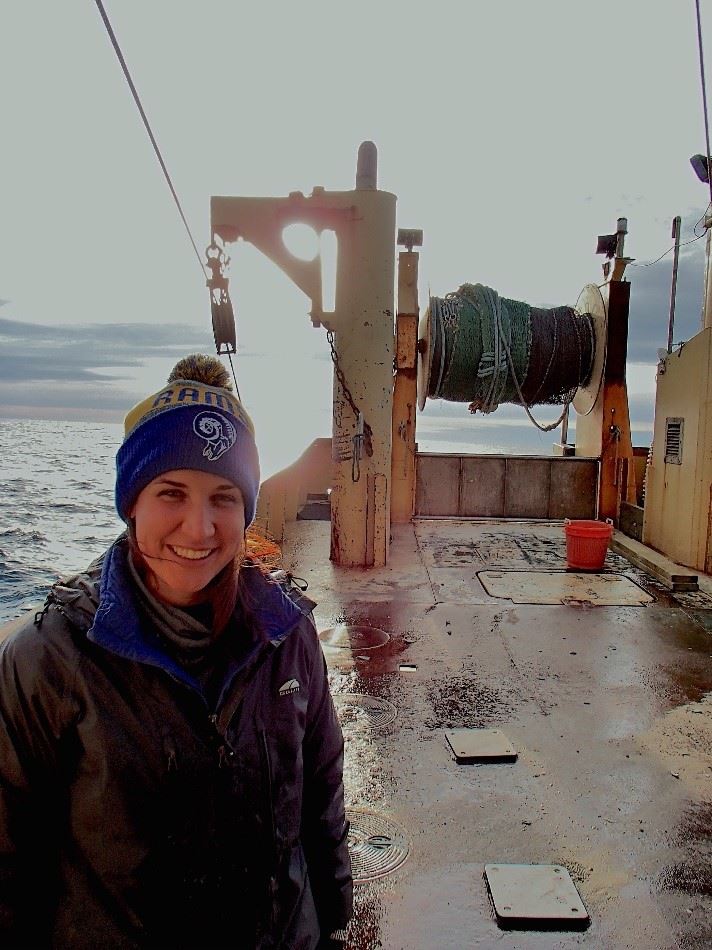 |
| Sydonia Manibusan (2020 Graduate Recipient) is completing her Ph.D. in Environmental Science with a concentration in Human Exposure Assessment at Rutgers – New Brunswick. Sydonia obtained her B.A. in Biology and M.S. in Environmental Science at the University of Guam. Sydonia was a 2020-2021 Eagleton Fellow and completed an internship with the New Jersey Department of Environmental Protection (NJDEP) in the Office of Watershed and Land Management and is a 2022 Presidential Management Fellowship Finalist. She will be starting her postdoctoral research this summer at Georgia State University. Sydonia’s current research focuses on sampling of bioaerosols, the microbiological particles suspended in the air which can cause negative health effects. Her other graduate research includes consumer-grade particulate monitors in residential settings. Sydonia’s prior research included erosion and sedimentation monitoring in the Piti-Asan Watershed in Guam and the Talakhaya Watershed in Rota, MP, as part of a multi-agency environmental restoration project. Through the Talakhaya project and work with the Guam Nature Alliance she has been involved with various environmental outreach and education efforts. Her interests include environmental air and water pollution and their potential health and welfare impacts on communities. | 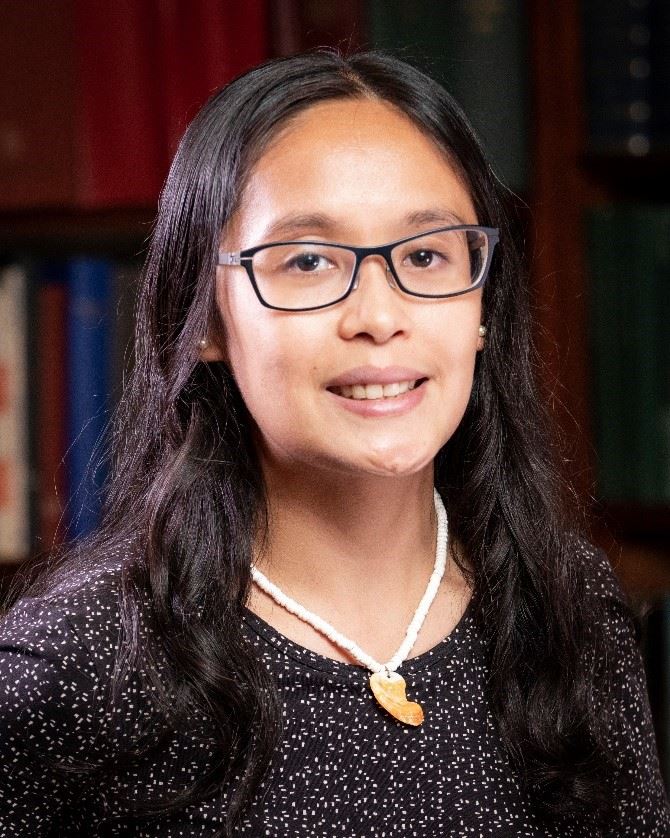 |

